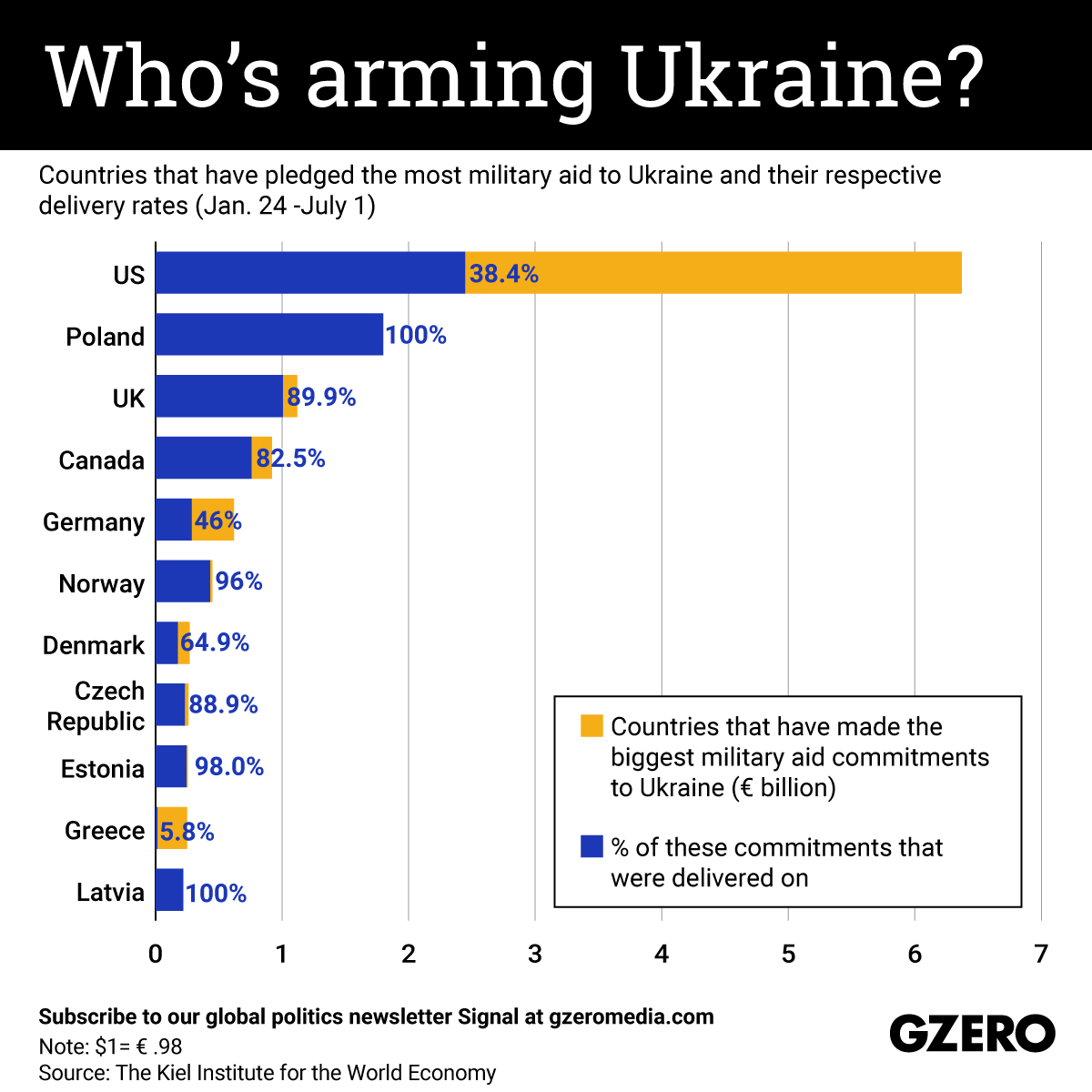Many countries have pledged weapons and military equipment – and big bucks – to help Ukraine better arm itself against the Russian army. Just this week, the US announced an additional $550 million in military aid to Kyiv in the near term, including more ammunition for the much-coveted High Mobility Artillery Rocket Systems (HIMARS). Making commitments is one thing, but delivering on those pledges is another. Indeed, some countries – like France and Italy – have been criticized for not providing more military aid to Ukraine, yet both those states have delivered on 100% of their commitments. While it is by far the largest single contributor to Ukraine's war chest, the US has yet to follow through on over half of its military aid commitments. We look at 10 countries that have pledged the most military aid to Ukraine and at how much they have delivered.
More from GZERO Media
The US and Iran are holding nuclear talks again: What kind of song and dance is preventing a new deal? #PUPPETREGIME
Revisiting the Vietnam War 50 years later, with novelist Viet Thanh Nguyen and author Mai Elliott
Listen: Two authors with personal ties to the Vietnam War reflect on its enduring legacy and Vietnam’s remarkable rise as a modern geopolitical player.
Fifty years after the fall of Saigon (or its liberation, depending on whom you ask), Vietnam has transformed from a war-torn battleground to one of Asia’s fastest-growing economies—and now finds itself caught between two superpowers. Ian Bremmer breaks down how Vietnam went from devastation in the wake of the Vietnam War to becoming a regional economic powerhouse.
Eurasia Group and GZERO Media are seeking a highly creative, detail-oriented Graphic and Animation Designer who lives and breathes news, international affairs, and policy. The ideal candidate has demonstrated experience using visual storytelling—including data visualizations and short-form animations—to make complex geopolitical topics accessible, social-friendly, and engaging across platforms. You will join a dynamic team of researchers, editors, video producers, and writers to elevate our storytelling and thought leadership through innovative multimedia content.
While the Catholic world prepares for the funeral of Pope Francis on Saturday – the service begins at 10 a.m. local time, 4 a.m. ET – certain high-profile attendees may also have other things on their mind. Several world leaders will be on hand to pay their respects to the pontiff, but they could also find themselves involved in bilateral talks.
The Democratic Republic of the Congo and an alliance of militias led by the notorious M23 rebels announced a ceasefire on Thursday after talks in Qatar and, after three years of violence, said they would work toward a permanent truce.
Prime Minister Narendra Modi has blamed Pakistan for Tuesday’s deadly terrorist attack in Kashmir, and he’s takenaggressive action against its government.
Have you stayed atop GZERO’s news coverage this week? Here's your chance to prove it.
